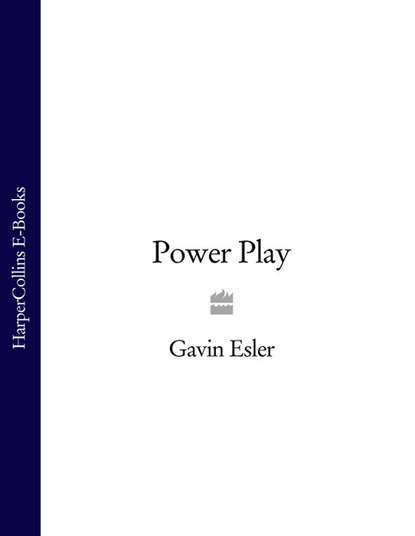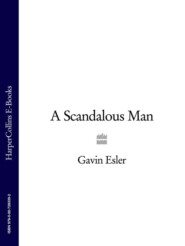По всем вопросам обращайтесь на: info@litportal.ru
(©) 2003-2024.
✖
Power Play
Автор
Год написания книги
2018
Настройки чтения
Размер шрифта
Высота строк
Поля
Carr and Luntz nodded that it would be a good idea. Of course it was a good idea. A convenient friendship was born.
‘Passing through our state capital? No way,’ Theo Carr told me as I prepared to leave. He had that famous twinkling in his eyes and a cheeky grin. ‘Delighted as we are to see you, Mr Price, no one just passes through here.’
Theo Carr was Governor of a state of ‘flyover people’–the people you fly over on the way between the east and west coasts.
‘Busted,’ I admitted, holding my hands up in mock surrender. ‘I made a point of coming to see you, Governor Carr. You are worth a deliberate detour, as they say in the tourist guidebooks.’
He laughed. ‘Yeah, like a National Park. And why might the–what’s that title again?–Minister Counsellor at the Embassy of the United Kingdom in Washington be sufficiently interested in Governor Theo Carr to make a detour?’
‘Talent spotting,’ I laughed along with him. ‘I think you might be President of the United States one day …’
‘You–and Arlo here–and my momma, God bless her,’ he interrupted with more twinkling and more of a grin. ‘Makes three of you. Just a couple of hundred million American voters to go.’
‘… and I thought we should do what dogs do in the street, and sniff noses.’
Theo Carr laughed uproariously. So did Luntz.
‘Let’s just leave it at noses,’ he guffawed, and slapped me on the shoulder. It was a Gateway Moment. Fast-forward a few years, and now here I am promoted to Ambassador and he is what the US Secret Service calls POTUS, President of the United States, and Arlo Luntz is the most highly regarded and devious political consultant on the planet. It was worth the deliberate detour.
‘We didn’t do so badly, Alex,’ Theo Carr told me at the White House reception for the Inauguration, ‘for a coupla country boys.’
In those first months of his presidency–and despite all the trouble I was having with Vice-President Black–President Carr, building on that early familiarity, always called me by my first name.
At diplomatic functions or G8 Summits he would point at me in that friendly way of his, and call out, ‘Yo, Brit Guy, how’s the nose-sniffin’ comin’ along?’
None of this bonhomie made any impression on the Vice-President. Month after month it seemed to me that Black had a moat around him, like an old-fashioned castle.
‘The drawbridge is up, the portcullis down, defences primed to repel invaders, Alex,’ Johnny Lee Ironside once told me. Johnny Lee has many talents, of course, including a fine turn of phrase. He’s loyal. Discreet. Clever. And unlike those who talk behind the Vice-President’s back, Johnny Lee genuinely admired and respected Black, yet even he sometimes called his boss by the Churchillian phrase once applied to Soviet Russia–a riddle inside an enigma, wrapped in a mystery. What makes Johnny Lee special is that he is part of a dying breed within American politics, a gut-instinct Anglophile who does not just think relations between Britain and America are the most important rock for the United States, he breathes and eats it. Once when we were talking about the aloof nature of his boss, Johnny Lee confided that he had been reading the works of Evelyn Waugh and they provided a clue.
‘The Vice-President is an Englishman,’ Johnny Lee informed me, bizarrely.
I did not understand. ‘The Vice-President is from Montana,’ I blurted out. ‘Couldn’t be further from English in every way.’ The centre of gravity in American politics had shifted from East Coast anglophiles like Johnny Lee to people like Theo Carr, Bobby Black, and Kristina Taft. They were all from the West or Midwest. Johnny Lee shook his head.
‘Your Mr Waugh says that an English gentleman understands two social states–Intimacy and Formality. Intimacy is for family, lovers, and close friends. Formality is for everybody else.’ Johnny Lee smiled. He delights in being more learned about English culture than those of us who happen to be British. ‘Whereas we colonial-American types are capable of three social attitudes–Intimacy, Formality–but also Familiarity.’
I congratulated him. It was a great insight into Bobby Black’s character. Unlike many Americans, he could not do Familiarity. Theo Carr is the administration’s backslapping baby kisser. Bobby Black isn’t.
‘So how do you explain it?’ I wondered.
‘British genes,’ Johnny Lee said. ‘The Black family is from Scotland, ‘parently.’
Ah, I thought. A useful clue to the heart of Bobby Black’s darkness. Not Englishness after all, but Presbyterianism. The Vice-President was some kind of dour Scot from the mountains of Montana, with a chip on his shoulder about the English. I filed this piece of information away for further consideration.
As Arlo Luntz tells it, friendship in Washington, like that between me and Johnny Lee, is a ‘power resource’. It enables you to get things done. The more friends you have, the more stellar the cast list at your dinner parties, the more influential you are … therefore the more friends you have … and so on, in a virtuous circle of power. Luntz is full of little observations and proverbs like this, rules for conduct in modern politics. He told me once that Washington DC Rule Number One is ‘Don’t Make Unnecessary Enemies.’ Rule Two is that ‘the bigger your friends, the more juice you have’, ‘juice’ being Washington slang for power or influence, though not always in a good way.
‘And you have plenty juice, Ambassador Price,’ Luntz said to me, almost as an aside. ‘Anybody whose brother-in-law happens to be Prime Minister has plenty juice.’
In that first year of the Carr presidency, Vice-President Bobby Black had more juice than anyone in DC, except perhaps Carr himself, and yet he routinely broke Arlo Luntz’s basic rules. Bobby Black stomped on people. He made enemies, necessary and–like Kristina Taft and me–unnecessary enemies too. His own friends were anonymous corporate types from his previous business past, middle-aged balding men in grey suits who ran oil companies, high-tech businesses and private security corporations, plus lawyers and lobbyists from what Washingtonians call ‘Gucci Gulch’–a corridor of nastiness along K Street in northwest Washington. It takes its name from the inhabitants who wear $500 tasselled Gucci loafers along with their $2,000 suits.
‘Friends in the shadows,’ Johnny Lee Ironside once told me of his boss, without explanation. ‘FOBs.’
FOBs meant ‘Friends of Bobby’. I knew some of the names. Just the names. Ron Gold of Goldcrest, the energy and private security consortium, was a long time FOB. So was Paul Comfort, the CEO of Warburton, the high-tech military and construction contractor. Warburton had somehow snagged all the latest contracts for rebuilding Iraq. This caused more bad feeling with Downing Street, much more than the public row about torture, Manila, Muhammad Asif Khan or the United Nations all put together. Fraser Davis was furious. He shouted at me on the secure line that the Americans had their snouts in the trough. More importantly, we did not.
‘British jobs are at stake, Alex!’
He demanded an explanation of how $7 billion in Iraqi contracts went to just one company, Warburton, on a no-bid basis, meaning no British firms could compete.
‘A billion dollars worth of these infrastructure projects is in the south–Basra–that’s supposed to be our bailiwick, Alex!’
‘I don’t think the Americans see it like that, Prime Minister.’
‘But … the Vice-President gave you a copy of that Spartacus document. He must think highly of you, yes? And of his relationship with the United Kingdom government? And yet he did not talk about the Iraq contracts?’
‘You know what it is like dealing with the Vice-President, Prime Minister. It’s not easy.’
I lamely tried to explain that no American firms were allowed to compete for the contracts either, and that Speaker Betty Furedi had promised a Congressional investigation into what she called the ‘Iraqi sweetheart deal scandal.’
‘But investigations in this town are like belly buttons, Prime Minister,’ I said, ‘everyone’s got one.’
Davis was apoplectic but impotent.
‘It’s just not right,’ he bellowed, ‘just not right.’
* * *
Warburton’s CEO Paul Comfort, like Bobby Black, was from Montana. They were childhood friends. People suspected something in their relationship, but could not get to the bottom of it. Campaign contributions? Soft money? I’d heard Comfort was a ‘bundler’–one of the people who ‘bundled’ contributions together from many sources and provided Bobby Black with serious and above board cash. But Gold and Comfort were just names to me. I read about them in the Wall Street Journal business pages. I knew they were members of NEST–Bobby Black’s National Energy Strategy Taskforce–set up to map out US energy policy for the twenty-first century, but you never saw them on TV, they never gave interviews, I never had the pleasure of meeting them. Men, as Johnny Lee said, from the shadows.
Johnny Lee Ironside also says that outside the White House there are five permanent Washington Tribes–Diplomats, Congressmen, Lawyers, Journalists, and Lobbyists. The Five Tribes overlap. Their people sleep with each other and sometimes marry. They play golf and poker, entertain together, commit adultery, and their children go to the same schools. Members of all Five Tribes know that, like the Carr-Black administration, the people in the White House come and go, but the Tribes go on forever. Superficially the Tribes defer to the Office of the President, and to the Office of the Vice-President, but all the time they know that the President and Vice-President will only trouble the permanent Tribes at most for eight years before being replaced by the next incumbents. The Office of the Vice-President is, of course, proverbially ‘one heartbeat away’ from the most powerful job in the world, but those of us in the permanent Five Washington Tribes feared Bobby Black, because he was much more important than that.
Here’s an example. A Wednesday morning, just after 11 a.m., six months after the Inauguration. An intruder, a deranged man from West Virginia, leaped over the White House fence and ran towards the Oval Office, threatening to kill President Carr. He set off the alarms and was stopped by the Secret Service before he could get more than twenty metres. The deranged man had a gun, an old Smith & Wesson revolver, and the Secret Service shot him in both legs. He was lucky they did not kill him immediately. The gun turned out to be empty. Not a bullet in the chamber. I was in the library of the Great House at the embassy on Massachusetts Avenue where I like to work.
CNN were live in the White House pressroom where Sandy McAuley, the Communications Director, was fielding reporters’ questions about the incident. I put my papers to one side and watched.
‘Where was the President–and the Vice-President–at the time of the incident?’ one of the reporters asked.
McAuley twitched a little. ‘Vice-President Black was at his desk in the West Wing, working on papers.’
Pause.
‘But where was President Carr?’
McAuley twitched some more. ‘President Carr was in the family quarters.’
‘Doing what?’
‘President Carr was exercising on a rowing machine in the gym.’
You could hear the intake of breath from the journalists, and a few titters of laughter. Even those of us who are not professional workaholics usually put in a few hours work in the mornings. It was just after 11 a.m. on a weekday, six months after President Theo Carr’s election, and when a nutty assassin tried to get in to the White House, the President was on a rowing machine? And Vice-President Bobby Black was in the West Wing, at his desk, working on papers? Running the country? Told you something, didn’t it?






